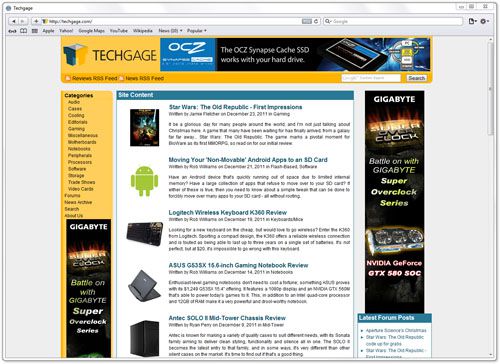This is a simple question, but a good one. What is it about Apple's Safari browser that is holding it back from mass adoption? The first Windows release occurred long before Google Chrome's existence, and for all intents and purposes, both are fast, competent offerings. Yet, Chrome came out in September 2008 and today by most reports has surpassed Mozilla's Firefox in overall usage - a browser which saw its 1.0 version released in late 2004.

Read the rest of our post and then discuss it here!

Read the rest of our post and then discuss it here!
